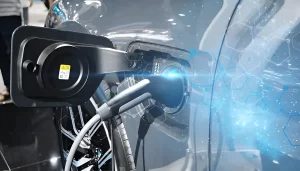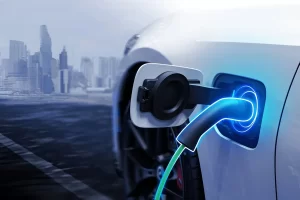As electric vehicles (EVs) continue to gain popularity, one of the most common questions new and prospective EV owners ask is: “Where can I charge my electric car?” Whether you’re planning daily commutes or long road trips, understanding your charging options is essential.
Understanding EV Charging Basics
Before diving into the locations where you can charge your electric car, let’s quickly review the different types of charging stations:
- Level 1 Charging: Uses a standard household outlet (120V) and provides about 2-5 miles of range per hour. Ideal for overnight home charging.
- Level 2 Charging: Requires a 240V outlet and charges faster, adding 10-60 miles per hour. Found at homes, workplaces, and public stations.
- DC Fast Charging (Level 3 Charging): Provides rapid charging, adding 60-200+ miles in 20-45 minutes. Available at highway rest stops, shopping centers, and EV charging networks.

Now that you understand the basics, let’s explore where you can charge your electric vehicle.
1. Charging at Home
Charging at home is the most convenient and cost-effective option for EV owners. It allows you to start each day with a full battery without having to make extra stops.
Home Charging Options:
- Standard Outlet (Level 1): Plugging into a regular 120V outlet is slow but sufficient for those with short daily commutes.
- Dedicated Home Charging Station (Level 2): A faster option that requires installation but significantly reduces charging time.
Benefits of Home Charging:
- Convenient and reliable
- Lower cost compared to public charging stations
- No waiting for available chargers
- Can take advantage of off-peak electricity rates
2. Public Charging Stations
For those who drive longer distances or don’t have access to home charging, public charging stations are essential. These stations are commonly found in urban areas, shopping centers, and along highways.
Where to Find Public Charging Stations:
- Shopping Malls and Retail Centers: Many shopping centers now offer EV chargers in their parking lots.
- Grocery Stores: Some supermarkets provide charging stations to attract eco-conscious customers.
- Hotels and Resorts: If you’re traveling, many hotels now offer EV charging as a guest amenity.
- Parking Garages: Many city-owned and private parking garages have dedicated EV charging spots.
- Workplaces: Some employers provide EV charging stations as part of their sustainability efforts.
Tips for Using Public Charging Stations:
- Check availability using EV charging apps to avoid waiting in line.
- Plan your route to ensure you don’t run out of battery before reaching the next charging station.
- Be mindful of charging etiquette—don’t occupy a charger longer than needed.
3. Highway and Roadside Charging
Long road trips require strategic charging stops, and highway charging stations play a crucial role in making electric vehicle travel practical.

Best Places for Highway Charging:
- Rest Stops: Many major highways have integrated fast-charging stations at rest areas.
- Gas Stations with EV Chargers: Some traditional gas stations now include EV charging options.
- Service Plazas: Larger travel plazas often provide multiple fast-charging stations.
How to Plan for Long Trips:
- Use trip-planning apps to locate fast chargers along your route.
- Choose stops where you can grab food or take a break while charging.
- Always carry a charging cable in case of emergency.
4. Charging at Workplaces
Many employers are now offering EV charging stations as a perk for employees. If your workplace provides this option, it can be a great way to top up your battery while working.
Benefits of Workplace Charging:
- Saves time by charging while you work
- Reduces home electricity costs
- Encourages sustainable commuting practices
If your workplace does not yet have charging stations, consider speaking to management about the benefits of installing them.
5. Destination Charging
Many businesses now offer EV charging as a way to attract and retain customers. These are often found at hotels, restaurants, and entertainment venues.
Best Destination Charging Spots:
- Hotels and Resorts: Ideal for overnight charging during vacations or business trips.
- Restaurants and Cafés: Great for topping up while enjoying a meal.
- Theme Parks and Tourist Attractions: Many popular attractions now offer EV charging as part of their amenities.
6. Emergency Charging Options
Running low on battery without a nearby charging station can be stressful, but there are solutions:
- Mobile Charging Services: Some companies provide on-demand charging where a vehicle comes to charge your car.
- Towing to the Nearest Charging Station: Roadside assistance services may help transport your EV to a nearby charger.
- Friends and Family Homes: If you’re close to someone’s house, you can use their home outlet as a temporary charging solution.
How to Find EV Charging Stations
Finding charging stations is easier than ever with the help of mobile apps and navigation tools. Here are some ways to locate charging points:

- EV Navigation Systems: Most electric cars have built-in GPS systems that display nearby charging stations.
- Smartphone Apps: Several apps provide real-time charging station locations, availability, and pricing.
- Online Maps and Websites: Many websites offer search tools to find charging stations along your route.
Final Thoughts
As electric vehicles become more common, the availability of charging stations continues to expand. Whether you’re charging at home, work, or on the go, planning ahead ensures a smooth and stress-free EV experience.
By understanding where to charge your electric car, you can maximize convenience, save money, and enjoy all the benefits of driving an EV without range anxiety. Keep exploring new charging locations, stay updated with the latest charging technologies, and enjoy the journey toward a more sustainable future!
Visit: CELECTRIC MOBILITY

